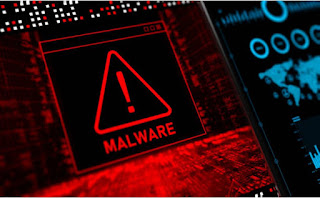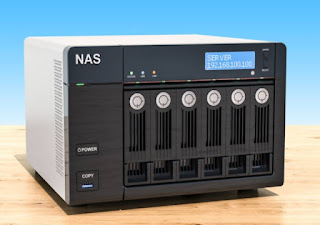Tips to Secure Your Network
Computer networks were once a luxury that was not essential to business operations. Businesses that depend on computers to deliver and acquire services have seen this change. Customers, business partners and remote workers all expect connectivity to your office network. The interconnected nature and productivity of networks opens up to new levels of productivity, as well as to potential threats to business.
It is not a luxury; it should be a business necessity. Secure networks have many benefits.
It's more reliable, has fewer issues, and therefore costs less to keep it running.
It safeguards your bandwidth investment by controlling abusive use of unwitting hosting.
This reduces your risk of being sued or regulated.
This article will highlight many tips and tricks for protecting networks. These tips were based on research into published industry best practices, tips from government sites (e.g. the FCC), and our own experience supporting business networks.
These tips can greatly improve your network security. However, no one can guarantee 100% security. It is important to balance security requirements with the right investments in time, money and business goals. These strategies are organized in a few key points FortinetColombia .
Policy Strategy and Education for Employees
Provide security training: All employees, including managers and executives, must be trained on basic security techniques and how to protect sensitive business information. You should establish policies and guidelines, with penalties for those who violate them, regarding how to protect sensitive data. Training should be made available regularly. The topics include whether or not to use the Web for personal use, instant messaging, social media sites, streaming video, and music, how companies monitor Web usage, prohibited activities and tips for safe browsing.
Strong passwords are important: Passwords are one of the most popular ways to gain access to network resources. They are easy to hack with automated tools. Training staff to use passwords like their home keys. Don't leave them behind and don't share. Strong passwords are composed of a combination or letters, numbers, and symbols. They are at least 8 characters long and are updated every quarter.
Control Access to Information: It is unlikely that you want everyone to have full access to all information. It is important to use network permissions and user groups in a way that ensures network resources and data are available only on a business-need basis. Administrator accounts should only be granted to executives and trusted resources. Many line-of business applications support various roles such as sales, operations, accounts payables, and so on. Access to the data they keep on a business basis.
Internal Network Strategy
You must implement backup and disaster recovery procedures: Your core business data is vital to any company's survival. It is easy to protect your critical data by setting up a multi-level backup process: image, file, folder and offsite. This is where Backup and Disaster Recovery appliances (BDR) come in. They can help you speed up server recovery in the event of a failure. It is important to test your backups regularly as part of any backup strategy.
Install Desktop and Server Virus Prevention: These software solutions are well-known and continue to evolve with new threats. Make sure your anti-malware software is up to date and that its definitions are current.
Reliable software vendors regularly patch servers and desktops. These patches are available to you. Your computer is protected from known vulnerabilities and attacks by keeping security patches up-to-date from software vendors. There are also centralized tools for managing patches that can be done quickly.
Computer Administration Centralized: You can centralize the process by implementing a server, and applying a group rule across all computers. This will save you time and reduce the amount of time required to set up configurations on each computer. You can centrally manage security features such as virus updates, security patches and desktop firewalls.
Secure Physical Access: Don't forget to verify the physical location and security of your network infrastructure. These must be easily accessible by trained and trusted employees. This infrastructure should be kept secure in a locked area or in a server closet to prevent fraud or accidental access to the network.
Secure WiFi Access: Mobile employees can access the network via WiFi. Data traveling over the air is less secure than data travelling over wired networks. Interception of information traveling by air is possible. To protect yourself from interception or risk, use wireless data encryption protocols. You can also set up wireless access points for guests on a different subnet to allow them access the Internet, but not your network.
External Network Strategy and Perimeter Strategy
Consider outsourcing email services: Email is now a critical service for all businesses, regardless of size. Outsourcing your email infrastructure is an option if you don't have an application support infrastructure that is mission-critical. These solutions are easily available from major industry vendors, making them affordable. You can also leave the responsibility of maintaining and securing such infrastructure to those who do it 24x7.
Secure the Perimeter. Connecting to the Internet gives you and your employees access to valuable data, and allows you to be productive while on the move. However, it exposes your network and makes it vulnerable to intruders. To protect their edge network, most small businesses use consumer-grade routers/firewalls. These devices are capable of protecting the perimeter security needs, but they have not improved in their functionality. With business grade routers/firewalls/UTM (Universal Threat Management) appliances, you gain a powerful hardware platform that provides ability to filter malicious traffic and spam from the outside, receive regular security updates, provide secure remote access, implement intrusion detection and prevention services, and prevent infectious code from executing from trusted but compromised sites.
Keep informed and vigilant: Many government and industry sites are dedicated to network security. Keep up to date with the latest data and best practices. UTM appliances for business are intended to be remotely monitored from security operations centers, and to send alerts and reports that might need attention.




Comments
Post a Comment